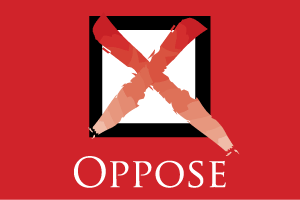 A California Chamber of Commerce-opposed bill that could subject a wide range of businesses and other facilities, such as office buildings, warehouses, hospitals, and universities, to costly compliance and citizen lawsuits is awaiting action by Governor Gavin Newsom.
A California Chamber of Commerce-opposed bill that could subject a wide range of businesses and other facilities, such as office buildings, warehouses, hospitals, and universities, to costly compliance and citizen lawsuits is awaiting action by Governor Gavin Newsom.
The proposal, AB 2106 (Robert Rivas; D-Hollister), imposes new permitting requirements on stormwater runoff from commercial and institutional facilities that may expose permittees to citizen lawsuits. The bill constrains State Water Board discretion in addressing stormwater that may have unintended consequences on regulated entities.
AB 2106
Specifically, AB 2106 would require the State Water Board to issue National Pollutant Discharge Elimination System (NPDES) permits to “commercial, industrial, and institutional” facilities for stormwater discharges. NPDES permits are creations of the federal Clean Water Act, which the State Water Board administers in California.
Unlike state law governing water quality, the federal Clean Water Act includes a citizen lawsuit provision, allowing average citizens to bring enforcement actions in federal courts. Currently, NPDES permits for stormwater discharges exist only for industrial facilities, as defined, municipal storm sewer systems, and construction activities. Commercial properties are not required to obtain an NPDES for stormwater, and thus are not exposed to the risk of litigation under the Clean Water Act.
Affects Wide Range of Businesses, Facilities
Like other private rights of action, citizen lawsuits under the Clean Water Act begin with a demand letter and may result in full-scale civil litigation if the matter is not settled. Settling these lawsuits can costs tens if not hundreds of thousands of dollars, and litigation drives up these costs even further. In California, many Clean Water Act cases are threatened or filed annually against existing permittees.
This bill greatly expands the universe of entities that will become targets. The scope of facilities subject to this new permitting requirement is broad and largely undefined. It is likely to include essentially any commercial property with paved surfaces, such as shopping malls, grocery stores, other retail, and more. It will also likely include facilities such as stadiums, hospitals, and universities.
The permit required in AB 2106 will apply to an unknown number of entities. Additionally, this means that the State Water Board will be burdened with a large regulatory program that would need to be developed from the ground up, implemented, and enforced.
This program would bring in numbers of entities and facility types that were not previously permitted by the State Water Board and will require significant resources to administer. For example, though the bill would apply only to those commercial, industrial, and institutional facilities that are “significant contributors” of pollutants to jurisdictional waters, it is unclear how it would be determined whether a facility meets this standard.
This adds to the administrative burden of developing this program and ensuring it is clear enough for businesses to determine whether they are required to obtain permit coverage.
Bill Legislates State Water Board’s Priorities
Existing federal law allows the State Water Board to make findings and issue new types of statewide general permits, when warranted. AB 2106 does not confer any new authority but imposes new priorities on the State Water Board.
This bill ultimately puts a higher priority on this new stormwater permit than other water quality priorities, including renewals of existing water quality permits and other responsibilities required in federal law.
Action Needed
The CalChamber is asking businesses to contact the Governor and urge him to veto AB 2106. For a sample letter, click here.
Staff Contact: Brenda Bass


